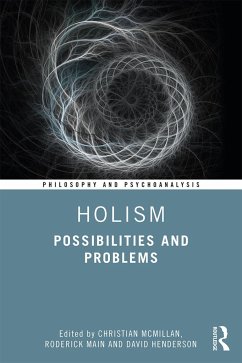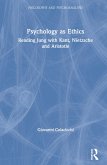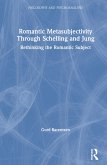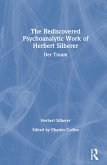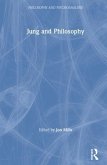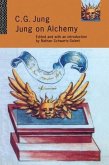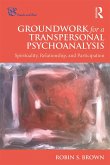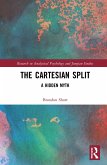Holism
Possibilities and Problems
Herausgeber: McMillan, Christian; Henderson, David; Main, Roderick
Holism
Possibilities and Problems
Herausgeber: McMillan, Christian; Henderson, David; Main, Roderick
- Gebundenes Buch
- Merkliste
- Auf die Merkliste
- Bewerten Bewerten
- Teilen
- Produkt teilen
- Produkterinnerung
- Produkterinnerung
The terms 'holism' and 'holistic' arouse strong emotional responses in contemporary culture, whether this be negative or positive, and the essays in this interdisciplinary collection probe, each in its own way, the possibilities and problems inherent in thinking holistically.
Andere Kunden interessierten sich auch für
![Psychology as Ethics Psychology as Ethics]() Giovanni ColacicchiPsychology as Ethics186,99 €
Giovanni ColacicchiPsychology as Ethics186,99 €![Romantic Metasubjectivity Through Schelling and Jung Romantic Metasubjectivity Through Schelling and Jung]() Gord BarentsenRomantic Metasubjectivity Through Schelling and Jung186,99 €
Gord BarentsenRomantic Metasubjectivity Through Schelling and Jung186,99 €![The Rediscovered Psychoanalytic Work of Herbert Silberer The Rediscovered Psychoanalytic Work of Herbert Silberer]() Herbert SilbererThe Rediscovered Psychoanalytic Work of Herbert Silberer186,99 €
Herbert SilbererThe Rediscovered Psychoanalytic Work of Herbert Silberer186,99 €![Jung and Philosophy Jung and Philosophy]() Jung and Philosophy153,99 €
Jung and Philosophy153,99 €![Jung on Alchemy Jung on Alchemy]() C G JungJung on Alchemy163,99 €
C G JungJung on Alchemy163,99 €![Groundwork for a Transpersonal Psychoanalysis Groundwork for a Transpersonal Psychoanalysis]() Robin BrownGroundwork for a Transpersonal Psychoanalysis186,99 €
Robin BrownGroundwork for a Transpersonal Psychoanalysis186,99 €![The Cartesian Split The Cartesian Split]() Brandon D ShortThe Cartesian Split163,99 €
Brandon D ShortThe Cartesian Split163,99 €-
-
-
The terms 'holism' and 'holistic' arouse strong emotional responses in contemporary culture, whether this be negative or positive, and the essays in this interdisciplinary collection probe, each in its own way, the possibilities and problems inherent in thinking holistically.
Hinweis: Dieser Artikel kann nur an eine deutsche Lieferadresse ausgeliefert werden.
Hinweis: Dieser Artikel kann nur an eine deutsche Lieferadresse ausgeliefert werden.
Produktdetails
- Produktdetails
- Verlag: Taylor & Francis
- Seitenzahl: 196
- Erscheinungstermin: 10. Dezember 2019
- Englisch
- Abmessung: 239mm x 163mm x 18mm
- Gewicht: 431g
- ISBN-13: 9780367424817
- ISBN-10: 0367424819
- Artikelnr.: 58412462
- Herstellerkennzeichnung
- Libri GmbH
- Europaallee 1
- 36244 Bad Hersfeld
- gpsr@libri.de
- Verlag: Taylor & Francis
- Seitenzahl: 196
- Erscheinungstermin: 10. Dezember 2019
- Englisch
- Abmessung: 239mm x 163mm x 18mm
- Gewicht: 431g
- ISBN-13: 9780367424817
- ISBN-10: 0367424819
- Artikelnr.: 58412462
- Herstellerkennzeichnung
- Libri GmbH
- Europaallee 1
- 36244 Bad Hersfeld
- gpsr@libri.de
Christian McMillan, PhD, is Lecturer at West Suffolk College, University of Suffolk, and was formerly Senior Research Officer in the Department for Psychosocial and Psychoanalytic Studies, University of Essex, UK. Roderick Main, PhD, is a professor in the Department of Psychosocial and Psychoanalytic Studies and Director of the Centre for Myth Studies at the University of Essex, UK. David Henderson, PhD, is Lecturer in Jungian Studies in the Department for Psychosocial and Psychoanalytic Studies, University of Essex, UK. He is a member of the British Jungian Analytic Association (BJAA) and the International Association for Analytical Psychology (IAAP).
Introduction: Roderick Main, Christian McMillan and David Henderson; Part
1: History and contexts; Chapter 1: How do we think in terms of wholes?
Holistic voices and visions after World War II, Linda Sargent Wood; Chapter
2: Irreducible responsibility: applying holism to navigate the
Anthropocene, Andrew Fellows; Chapter 3: Georg Ernst Stahl's holistic
organism, Barbara Helen Miller; Part 2: Analytical Psychology; Chapter
4: From the split to wholeness: the 'coniunctio' in C. G. Jung's Red Book,
Alessio de Fiori; Chapter 5: Science as a system: connections between Carl
Gustav Jung's holistic thoughts about science and his Red Book experience,
Armelle Line Peltier; Chapter 6: The holistic wish: migration of feeling,
thought and experience, Phil Goss; Chapter 7: Holistic education: the
Jungian dilemma, Robert Mitchell; Chapter 8: Simondon and Jung: re-thinking
individuation, Mark Saban; Part 3: Philosophy; Chapter 9: A whole made of
holes: interrogating holism via Jung and Schelling, Gordon Barentsen;
Chapter 10: Jung, Spinoza, Deleuze: a move towards realism, Robert Langan;
Chapter 11: Kant's influence on Jung's vitalism in the Zofingia Lectures,
Christian McMillan; Chapter 12: An emergent, critical realist understanding
of holism, Ian Hornsby; Chapter 13: Synchronicity: between wholes and
alterity, Rico Snellee; Chapter 14: Why don't holisms describe the whole?
The psyche as a case study, John Mackey; Part 4: Practice and the arts;
Chapter 15: A synchronistic experience in Serbia, Richard Berengarten;
Chapter 16: The concept of kami in Shint¿ and holism: psychotherapy and
Japanese literature, Megumi Yama; Chapter 17: The CORE Trust: the holistic
approach to addiction, Jason Wright
1: History and contexts; Chapter 1: How do we think in terms of wholes?
Holistic voices and visions after World War II, Linda Sargent Wood; Chapter
2: Irreducible responsibility: applying holism to navigate the
Anthropocene, Andrew Fellows; Chapter 3: Georg Ernst Stahl's holistic
organism, Barbara Helen Miller; Part 2: Analytical Psychology; Chapter
4: From the split to wholeness: the 'coniunctio' in C. G. Jung's Red Book,
Alessio de Fiori; Chapter 5: Science as a system: connections between Carl
Gustav Jung's holistic thoughts about science and his Red Book experience,
Armelle Line Peltier; Chapter 6: The holistic wish: migration of feeling,
thought and experience, Phil Goss; Chapter 7: Holistic education: the
Jungian dilemma, Robert Mitchell; Chapter 8: Simondon and Jung: re-thinking
individuation, Mark Saban; Part 3: Philosophy; Chapter 9: A whole made of
holes: interrogating holism via Jung and Schelling, Gordon Barentsen;
Chapter 10: Jung, Spinoza, Deleuze: a move towards realism, Robert Langan;
Chapter 11: Kant's influence on Jung's vitalism in the Zofingia Lectures,
Christian McMillan; Chapter 12: An emergent, critical realist understanding
of holism, Ian Hornsby; Chapter 13: Synchronicity: between wholes and
alterity, Rico Snellee; Chapter 14: Why don't holisms describe the whole?
The psyche as a case study, John Mackey; Part 4: Practice and the arts;
Chapter 15: A synchronistic experience in Serbia, Richard Berengarten;
Chapter 16: The concept of kami in Shint¿ and holism: psychotherapy and
Japanese literature, Megumi Yama; Chapter 17: The CORE Trust: the holistic
approach to addiction, Jason Wright
Introduction: Roderick Main, Christian McMillan and David Henderson; Part
1: History and contexts; Chapter 1: How do we think in terms of wholes?
Holistic voices and visions after World War II, Linda Sargent Wood; Chapter
2: Irreducible responsibility: applying holism to navigate the
Anthropocene, Andrew Fellows; Chapter 3: Georg Ernst Stahl's holistic
organism, Barbara Helen Miller; Part 2: Analytical Psychology; Chapter
4: From the split to wholeness: the 'coniunctio' in C. G. Jung's Red Book,
Alessio de Fiori; Chapter 5: Science as a system: connections between Carl
Gustav Jung's holistic thoughts about science and his Red Book experience,
Armelle Line Peltier; Chapter 6: The holistic wish: migration of feeling,
thought and experience, Phil Goss; Chapter 7: Holistic education: the
Jungian dilemma, Robert Mitchell; Chapter 8: Simondon and Jung: re-thinking
individuation, Mark Saban; Part 3: Philosophy; Chapter 9: A whole made of
holes: interrogating holism via Jung and Schelling, Gordon Barentsen;
Chapter 10: Jung, Spinoza, Deleuze: a move towards realism, Robert Langan;
Chapter 11: Kant's influence on Jung's vitalism in the Zofingia Lectures,
Christian McMillan; Chapter 12: An emergent, critical realist understanding
of holism, Ian Hornsby; Chapter 13: Synchronicity: between wholes and
alterity, Rico Snellee; Chapter 14: Why don't holisms describe the whole?
The psyche as a case study, John Mackey; Part 4: Practice and the arts;
Chapter 15: A synchronistic experience in Serbia, Richard Berengarten;
Chapter 16: The concept of kami in Shint¿ and holism: psychotherapy and
Japanese literature, Megumi Yama; Chapter 17: The CORE Trust: the holistic
approach to addiction, Jason Wright
1: History and contexts; Chapter 1: How do we think in terms of wholes?
Holistic voices and visions after World War II, Linda Sargent Wood; Chapter
2: Irreducible responsibility: applying holism to navigate the
Anthropocene, Andrew Fellows; Chapter 3: Georg Ernst Stahl's holistic
organism, Barbara Helen Miller; Part 2: Analytical Psychology; Chapter
4: From the split to wholeness: the 'coniunctio' in C. G. Jung's Red Book,
Alessio de Fiori; Chapter 5: Science as a system: connections between Carl
Gustav Jung's holistic thoughts about science and his Red Book experience,
Armelle Line Peltier; Chapter 6: The holistic wish: migration of feeling,
thought and experience, Phil Goss; Chapter 7: Holistic education: the
Jungian dilemma, Robert Mitchell; Chapter 8: Simondon and Jung: re-thinking
individuation, Mark Saban; Part 3: Philosophy; Chapter 9: A whole made of
holes: interrogating holism via Jung and Schelling, Gordon Barentsen;
Chapter 10: Jung, Spinoza, Deleuze: a move towards realism, Robert Langan;
Chapter 11: Kant's influence on Jung's vitalism in the Zofingia Lectures,
Christian McMillan; Chapter 12: An emergent, critical realist understanding
of holism, Ian Hornsby; Chapter 13: Synchronicity: between wholes and
alterity, Rico Snellee; Chapter 14: Why don't holisms describe the whole?
The psyche as a case study, John Mackey; Part 4: Practice and the arts;
Chapter 15: A synchronistic experience in Serbia, Richard Berengarten;
Chapter 16: The concept of kami in Shint¿ and holism: psychotherapy and
Japanese literature, Megumi Yama; Chapter 17: The CORE Trust: the holistic
approach to addiction, Jason Wright

